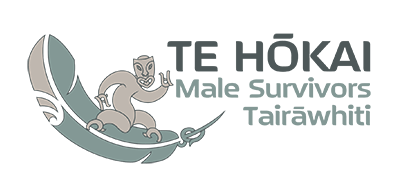WHAT do we know about effective recovery services for men who have been sexually abused?
was the big question posed by the writers of a 2019 report.
The answer was “not much”, but the authors of the report hoped that their research would add to the further development of services to support men who had been sexually abused.
Pulling together current evidence, the literature review was commissioned by the Ministry of Social Development (MSD) to inform service planning.
And its findings were disturbing, the writers quoting the 2018 New Zealand Crime and Victims Survey of over 8000 people, which found 12 percent of men had experienced one or more incidents of sexual violence at some point during their lives.
That sits alongside international reports of the prevalence of sexual abuse rates for males under the age of 16 that ranged from one-in-six to one-in-10.
The impacts, they said, could be long lasting.
The writers cited reports stating that well-documented longer-term impacts of sexual abuse included post-traumatic stress, drug and alcohol misuse, psychological/mental health distress, and employment and relationship breakdown, as well as self-harm/suicide.
Severe’ childhood sexual abuse experienced by male survivors has also been linked with increased levels of shame, guilt, and dissociation (Dorahy & Clearwater, 2012), they said. For some men this can result in intense shame and repressed rage (Lisak, 1995).
The writers concluded that a critical message to convey to men was that there was hope for recovery.
There are many men who have successfully gone through a process of recovery and men need to know this is possible. Due to misconceptions about the sexual abuse of males and the low levels of public awareness about this issue, men often feel isolated. It is important to let men know they are not alone, and where they can find information and a range of services to support their recovery.
However, they noted the barrier of low disclosure rates for men, who often delayed disclosure for years or decades – that was, if they ever disclosed at all.
Not knowing where to get help and fear of how they would be perceived could explain some of that, they said.
As well,
socially constructed ideas of ‘masculinity’ that promote ideals of toughness, dominance, and invulnerability can influence how men perceive themselves and how abuse impacts them in terms of stigma, shame and mental distress.
This can prevent some men from disclosing sexual abuse and seeking help. And these negative interpretations of ‘masculinity’ can influence responses from family, friends and some professionals.
The writers believed myth-busting was important to minimising distress and opening doors to male survivors.
Myths such as ‘male abuse survivors go onto abuse’; ‘sexual abuse of boys and men is not very common’; ‘boys/men abused by men must be gay’ have been discredited but they persist, and can impact the response to boys and men who disclose abuse.
The writers noted that national male survivors peer support network, Male Survivors Aotearoa (MSA) – of which Te Hokai: Male Survivors Tairawhiti is an affiliate – was a primary service for long-term recovery, while Wellingtonians could also connect with the Mosaicpeer support service.
Elsewhere, men may also be able to access specialist counselling services (particularly via ACC sensitive claims service), and telephone and on-line services.
A study on the effectiveness of peer support services for male survivors is currently underway in Aotearoa but research in related areas noted it could offer improvements associated with hope, recovery, and empowerment (Lloyd-Evans et al., 2014).
However, the report writers believed that could be added to with a mix of recovery approaches from individual and group programmes to professionally-facilitated peer support and, if required, psychotherapy and other counselling.
And they said it was crucial to have a client-centred approach tailored to an individual’s needs.
Sexual abuse results in complex trauma and the needs of survivors are diverse and can differ at different times.
Service developments should consider diversity among men, acknowledging and adapting services to meet the differences in men’s cultural and sexual identities.
SOURCE: What Is Known About Effective Recovery Services For Men Who Have Been Sexually Abused? An Evidence Review (Ministry of Social Development, October 2019).
